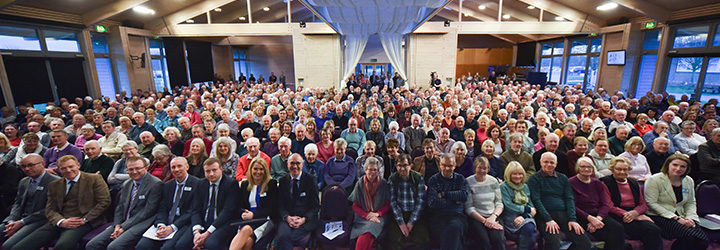On Wednesday 25 March 2020, we’ll once again be gathering for our lead member event and Annual General Meeting where we’ll be joined by guest speaker Barry Chevallier Guild.
Why attend our AGM?
Our AGM is a fantastic opportunity for our members and community stakeholders to find out how we’re doing, have their say and ask questions directly to our Board. Our AGM is our best attended event of the year – in fact, we’re delighted to have held the highest-attended AGM in the whole building society sector for the last 3 years running!
As a mutual, we remain true to our democratic roots by asking eligible members to vote on the resolutions we put forward – these include electing or re-electing Directors as well as receiving our annual Reports and Accounts.
We’ll also hear from our Chairman and Chief Executive who will give their thoughts on the previous financial year and look ahead to 2020, before handing over to our guest speaker for the informal part of the evening.
Introducing our guest speaker – Barry Chevallier Guild
Barry, together with his brother Henry, are the 8th generation of the family to run Aspall, the now world famous brand of cyder and vinegar. Barry took over from his father in 1997 and since 2011 has been Chairman of the business, supporting the brand’s strategic direction following its sale to Molson Coors to raise much needed investment for the business.
One of Suffolk’s best known companies, Aspall was founded when in 1728 Clement Chevallier started making cyder at Aspall Hall using fruit from local markets until his own trees could produce a crop. 292 years later, Aspall is now one of the most recognised brands of cyder and can be found in shops all over the world.
Barry will take to the stage to talk about his family’s history, the business and his plans for the future, with the opportunity to ask questions at the end.
If you’re a member of the Society, you can register to attend – and for this event only, members can register to bring a non-member guest (guest places will be subject to ballot if demand exceeds capacity).


















